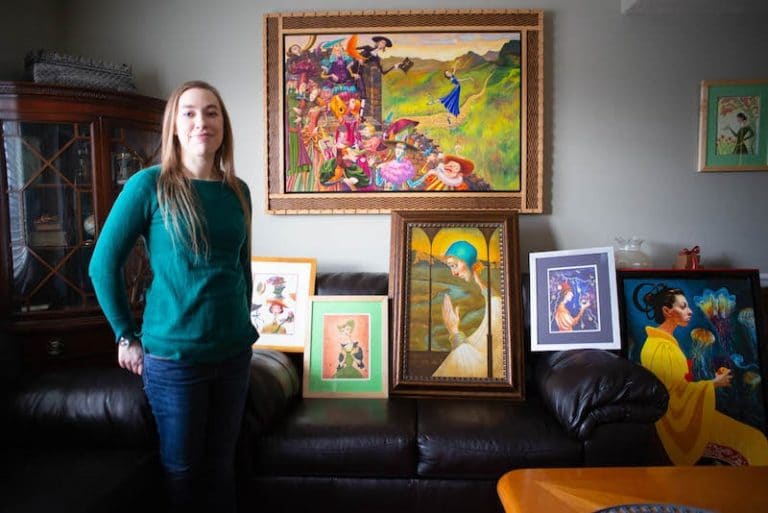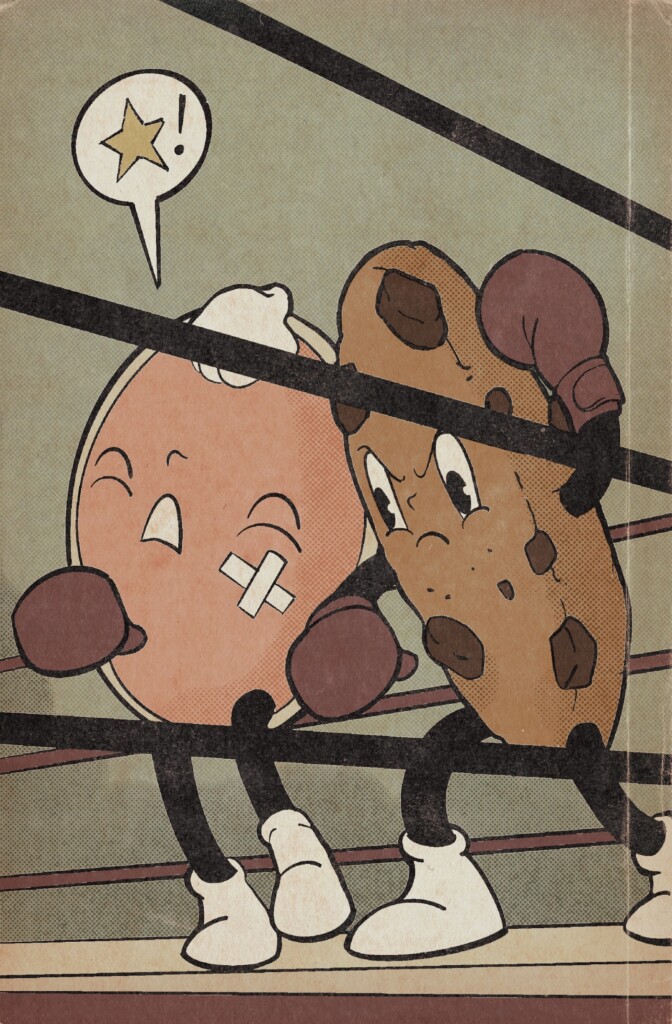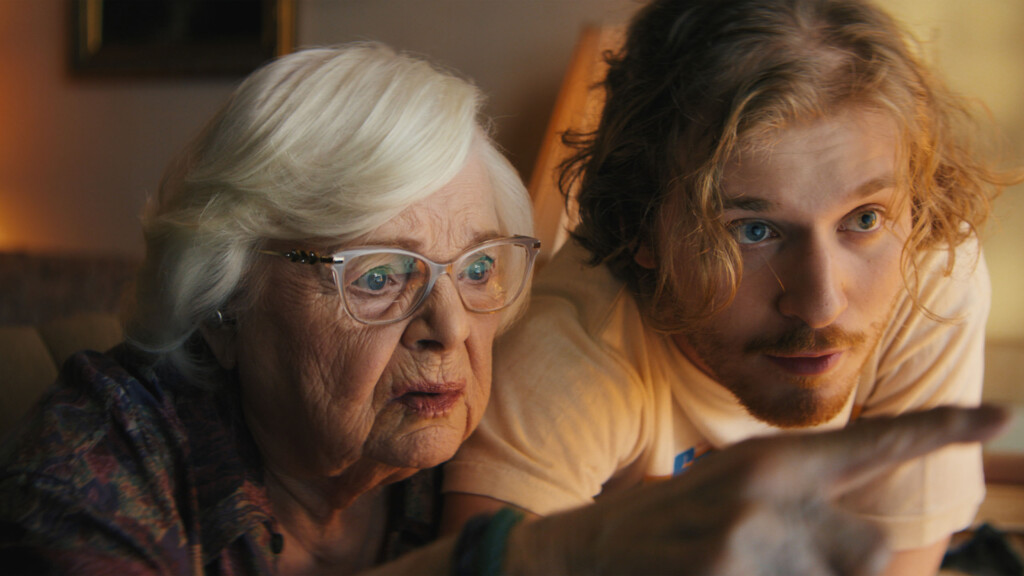
“I begin almost every painting with an idea in mind,” says artist Samantha Long, “be it a line from a hymn or a verse of scripture or something I’ve just been thinking about.”
“Zion Rising,” “What Souls are Worth,” “Raising the Saints,” “Fruits of the Spirit,” and “Fleeing Babylon,” are just a few of the names Long has given her paintings. The name of each piece gives you a glimpse into the story behind the painting, but in art, the real story is up to the interpretation of each individual.
“Fleeing Babylon” is about how we look for happiness in all the wrong places. Each character in the great and spacious building represents different aspects of human folly, ranging from greed and vanity to self-centeredness and absurdity,” says Long. “If we are to find true happiness, we need to flee from Babylon and strive toward the true light, the Savior Jesus Christ.”
Rich, bright colors and fairytale style characters that inhabit Long’s paintings give her art a whimsical feel. Long began painting in high school. “I always drew. I used to draw diagrams of my stuffed animals,” she says.
Framing her paintings got too expensive, so Long and her father, D.B. Long, teamed up and taught themselves how to make frames. “My dad now makes the frames and I paint.” The frames range from simple to intricate, with inlays of different woods.
You can find her work at David Ericson Fine Art Gallery in downtown Salt Lake City, on her website, and on her Instagram page. Long works out of her home studio in American Fork.
Instagram: @samanthalongart





